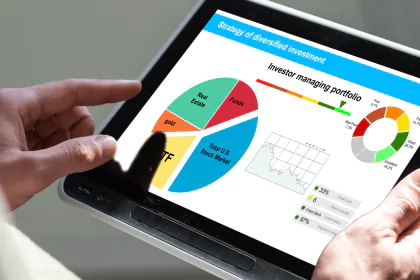The real estate market can be a labyrinth for both first-time buyers and seasoned sellers. Navigating this complex landscape requires a deep understanding of current trends, financial strategies, and legal requirements. In this comprehensive guide, we provide detailed advice for anyone looking to buy or sell a home in 2024. From understanding market dynamics to negotiating the best deals, this article offers everything you need to make informed decisions in the real estate market.
Introduction: The Real Estate Market in 2024
The real estate market in 2024 presents unique challenges and opportunities. With fluctuating interest rates, evolving buyer preferences, and technological advancements, it’s crucial to stay informed. Whether you’re buying your first home or selling your fifth, understanding the current market dynamics is key to a successful transaction.
Understanding the current real estate market is crucial for making informed decisions whether you’re buying or selling a home.
Jane Smith, Real Estate Analyst Key Considerations for Home Buyers
Assessing Your Financial Situation
Before diving into the housing market, it’s essential to evaluate your financial health. This includes reviewing your credit score, debt-to-income ratio, and savings. A strong financial foundation will help you secure favorable mortgage terms and avoid future financial strain.
- Credit Score: Aim for a score of 700 or higher to qualify for the best mortgage rates.
- Debt-to-Income Ratio: Lenders typically prefer a ratio below 36%. Calculate this by dividing your monthly debt payments by your gross monthly income.
- Savings: Ensure you have enough savings for a down payment, closing costs, and an emergency fund.
Understanding Mortgage Options
Choosing the right mortgage is critical. Fixed-rate mortgages offer stability with consistent payments, while adjustable-rate mortgages (ARMs) may start with lower rates but can fluctuate over time. Research various options and consult with a mortgage advisor to determine the best fit for your financial situation.
- Fixed-Rate Mortgage: Offers predictable payments and is ideal for long-term homeowners.
- Adjustable-Rate Mortgage: May be beneficial if you plan to sell or refinance before the rate adjusts.
Finding the Right Property
Location, size, and condition are major factors to consider when buying a home. Use online real estate platforms, such as Zillow and Realtor.com, to explore listings and gather information about neighborhoods, schools, and amenities.
- Location: Consider proximity to work, schools, and essential services.
- Size: Assess your current and future space needs.
- Condition: Evaluate the home’s condition and potential repair costs.
Making an Offer
Once you find the right property, making a competitive offer is crucial. Work with a real estate agent to analyze comparable sales in the area and determine a fair price. Be prepared to negotiate and consider including contingencies to protect yourself during the process.
Key Considerations for Home Sellers
Preparing Your Home for Sale
First impressions matter. Enhance your home’s curb appeal and make necessary repairs to attract potential buyers. Consider staging your home to showcase its best features.
- Curb Appeal: Ensure the exterior is well-maintained, with fresh paint, clean landscaping, and an inviting entryway.
- Repairs: Fix any noticeable issues, such as leaky faucets, broken tiles, or peeling paint.
- Staging: Arrange furniture and decor to highlight your home’s strengths.
Setting the Right Price
Pricing your home correctly is crucial for a quick sale. Overpricing can deter buyers, while underpricing can result in a financial loss. Use a comparative market analysis (CMA) and consult with a real estate agent to determine the optimal price.
- Comparative Market Analysis: Analyze recent sales of similar properties in your area.
- Agent Consultation: Leverage your agent’s expertise to set a competitive price.
Marketing Your Home
Effective marketing is essential to attract buyers. Utilize online listings, social media, and traditional methods to reach a broad audience.
- Online Listings: Use platforms like Zillow and Realtor.com to showcase your home.
- Social Media: Share your listing on Facebook, Instagram, and Twitter to reach more potential buyers.
- Traditional Methods: Consider open houses, flyers, and local advertisements.
Negotiating Offers
When you receive offers, evaluate them carefully. Consider not only the price but also the terms and contingencies. Your real estate agent can help you navigate the negotiation process to achieve the best outcome.
Navigating Legal and Financial Aspects
Legal Considerations
Buying or selling a home involves several legal steps, including contracts, disclosures, and inspections. Ensure you understand your legal obligations and consult with a real estate attorney if needed.
- Contracts: Review all contracts thoroughly before signing.
- Disclosures: Provide all required disclosures to avoid future legal issues.
- Inspections: Schedule inspections to identify any potential problems.
Financial Considerations
Both buyers and sellers need to be aware of the financial implications of their transactions. This includes understanding taxes, closing costs, and potential capital gains.
- Taxes: Be aware of property taxes, transfer taxes, and potential capital gains taxes.
- Closing Costs: Budget for closing costs, which can include appraisal fees, title insurance, and loan origination fees.
- Capital Gains: Understand the tax implications if you sell your home for a profit.
Utilizing Technology in Real Estate
Online Tools and Resources
Technology has revolutionized the real estate industry. Use online tools and resources to simplify the buying or selling process.
- Virtual Tours: Utilize virtual tours to view properties remotely.
- Mortgage Calculators: Use online calculators to estimate your monthly payments and budget.
- Real Estate Apps: Download apps like Redfin and Zillow for easy access to listings and market data.
Working with Real Estate Agents
A knowledgeable real estate agent can be invaluable in the buying or selling process. They provide market insights, negotiation skills, and support throughout the transaction.
- Finding an Agent: Use platforms like Realtor.com to find experienced agents in your area.
- Agent Benefits: Agents offer expertise, access to listings, and negotiation support.
Conclusion: Making Informed Decisions in Real Estate
Buying or selling a home is one of the most significant financial decisions you will ever make. The process is complex, filled with numerous variables and potential pitfalls, making it essential to be well-prepared and informed. Understanding the current real estate market trends, having a clear financial plan, and utilizing available resources can make the difference between a successful transaction and a costly mistake.
Understanding the Market
The real estate market is dynamic and can vary greatly from one region to another. By staying updated on local market conditions, you can better time your buying or selling efforts. For instance, knowing whether it’s a buyer’s market or a seller’s market can influence your strategy. In a buyer’s market, there are more homes available than buyers, giving you more negotiating power and potentially better prices. Conversely, in a seller’s market, there are more buyers than available homes, which can drive up prices and speed up sales.
Preparing Adequately
Preparation is key to a smooth real estate transaction. For buyers, this means getting pre-approved for a mortgage, understanding your budget, and having a clear idea of what you are looking for in a home. Pre-approval shows sellers that you are a serious buyer and can streamline the purchasing process. For sellers, preparation involves staging your home to make it more appealing to buyers, setting a competitive price based on a thorough market analysis, and being ready for inspections and appraisals. Proper preparation can reduce the stress and uncertainty often associated with real estate transactions.
Utilizing Available Resources
The digital age has brought numerous tools and resources to aid both buyers and sellers. Online platforms like Zillow, Realtor.com, and Redfin provide extensive listings, market analyses, and virtual tours, making it easier to find and compare properties. Mortgage calculators, affordability tools, and financial advice articles can help you understand your purchasing power and budget accurately. Additionally, working with a knowledgeable real estate agent can provide invaluable insights and assistance throughout the process. Agents have access to extensive networks and can offer guidance tailored to your specific needs and local market conditions.
Working with Professionals
Engaging professionals such as real estate agents, mortgage advisors, and real estate attorneys can significantly enhance your experience. Real estate agents bring expertise, negotiation skills, and an understanding of the market, helping you make the best possible decisions. Mortgage advisors can guide you through the financial aspects, ensuring you secure the best possible loan terms. Real estate attorneys can help navigate the legal complexities, ensuring all contracts and agreements are in your best interest.
Long-term Financial Health
Making informed decisions in real estate not only affects your immediate situation but also has long-term financial implications. A wise investment can increase your net worth, provide stability, and offer potential returns in the future. Conversely, a poorly planned purchase or sale can lead to financial strain and regret. By staying informed, preparing thoroughly, and utilizing professional advice, you can make decisions that enhance your long-term financial health.
Making informed decisions in real estate requires a deep understanding of market trends, financial strategies, and legal requirements.
John Doe, Real Estate Expert In conclusion, buying or selling a home requires careful consideration and informed decision-making. By understanding the market, preparing adequately, utilizing available resources, and working with professionals, you can navigate the complexities of the real estate market with confidence and achieve your financial goals.












